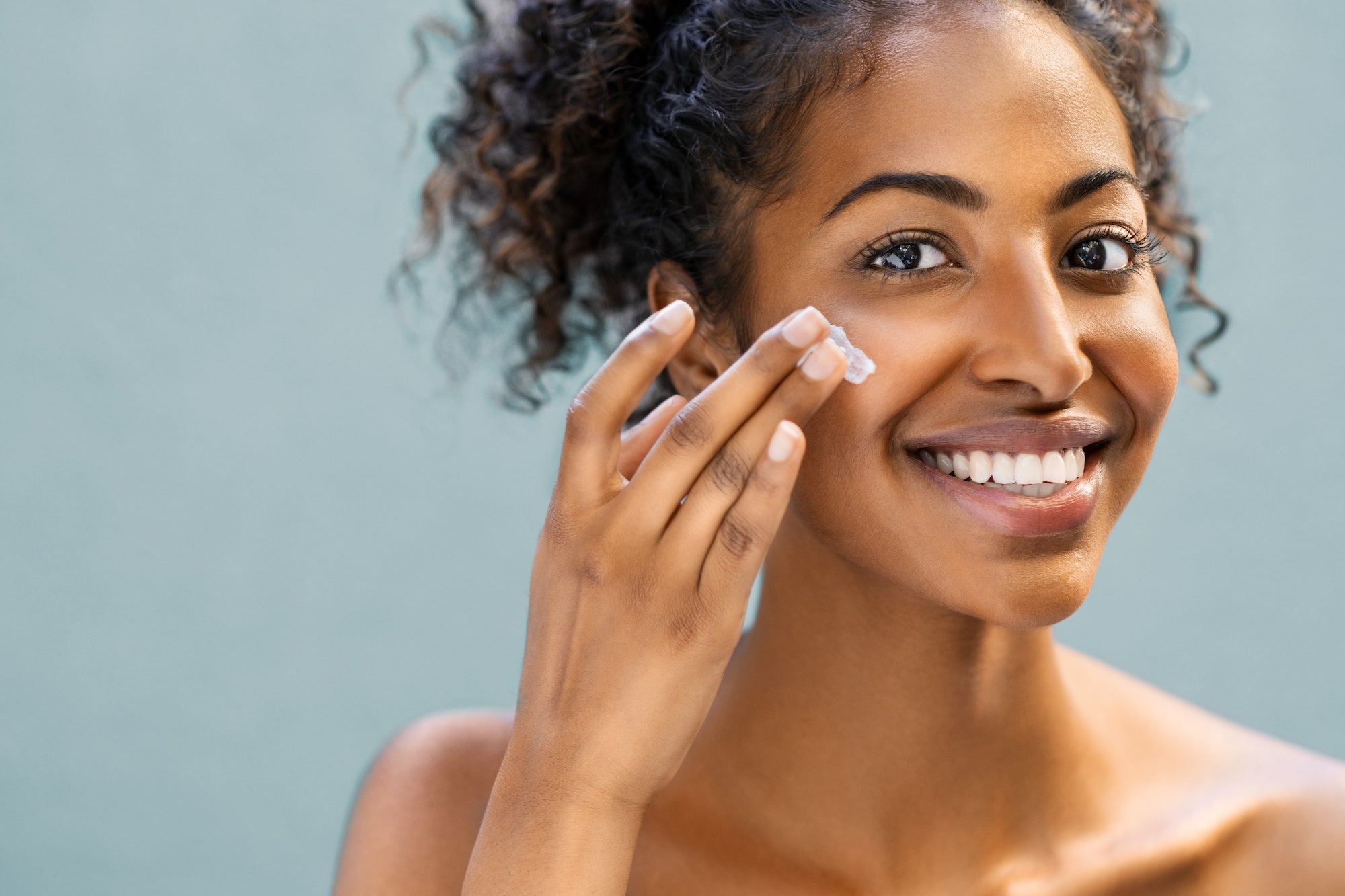
Can Blue Light Damage Your Skin? How Oxygenetix Prevents Skin Damage
We know the dangers of being in the sun too long without protection from harmful UVA and UVB rays, but did you know blue light radiation is also harmful? Blue light is strongest coming from the sun, but even if you are not in direct sunlight it can also come to you from exposure to the blue sky. It is also the type of light ray emitted from modern screens, devices, and LED lights. Recent studies show that the artificial light from our devices may be harming our skin.
In this modern digital age, humans are increasingly overexposed to artificial lights emitted from computer screens, televisions, cell phones, and indoor LED lights as we spend more time indoors. While a full spectrum SPF is necessary to protect our skin under the sun, it is now becoming critical to protect our skin and eyes when exposed to artificial light as well.
What is Blue Light?
According to the American Optometric Association, blue light is part of the visible light spectrum. The sun and the daylight sky radiate blue light, as do artificial light sources, such as LEDs, computers, and smartphones. The American Optometric Association stated, "A recent study found that Americans spend almost 2 ½ hours on their tablets and smartphones every day."
Blue light has a shorter wavelength than the rest of the color spectrum, therefore, more energy than other colors. Long exposure to blue light may cause damage to the eyes, as well as the skin. We are taught not to stare at the sun as it will damage our eyes pretty quickly but are just now starting to learn of the effects of staring at a computer screen.
The Lighting Research Center at Rennselaer Polytechnic Institute stated that "it takes an average of 13 hours in front of a computer screen to equal the amount of 15 minutes of sunlight blue lux. One hour of direct LED lighting equals to also 15 minutes of sunlight blue lux”. This suggests that although we require more protection outdoors, prolonged exposure to screens still warrants protection.
How Does Blue Light Affect Skin?
An article published in the Journal of Biomedical Physics and Engineering states, "Recent studies show that exposure of human skin cells to light emitted from electronic devices, even for exposures as short as 1 hour, may cause reactive oxygen species (ROS) generation," meaning an increase of free radicals in the skin.
Free radicals are unstable atoms that can cause damage to cells, causing premature aging and illness. Exposure to UVA, UVB, and Blue Light rays without proper protection damages skin cells causing premature wrinkling and sagging of the skin. Guarding the skin against these harmful rays is one of the top preventative measures we can take in maintaining a youthful appearance. Dermstore adds, "It is even more important if you’re dealing with rosacea and other skin conditions that flare up when exposed to the sun."
How Can We Protect Our Skin From Blue Light?
Just as sunscreen and products containing a sun protection factor (SPF) prevent sun rays from damaging the skin, they also protect us from artificial light rays emanating Blue Light.
Physical sunscreens that contain minerals such as Titanium Dioxide work best against free radicals. Both Oxygenetix Oxygenating Foundation and Oxygenetix Acne Control Foundation contain a physical Titanium Dioxide SPF 30.
Not only is this a safer SPF than most chemical sunscreens that contain toxic ingredients, but it also maintains protective power until the makeup comes off. The water-resistant and smudge-proof formulations protect the skin from harmful rays while maintaining healthy skin. Oxygenetix formulations also contain patented Ceravaitae®, a powerful agent in promoting younger-looking skin. Ceravitae® works to accelerate wound healing and skin cell production, combating environmental stressors such as overexposure to light rays.
Take precautionary measures to safeguard your skin cells from harmful light rays with Oxygenetix and enjoy aging gracefully and beautifully in the modern world.
Sources:
American Academy of Opthalmology
American Optometrest Association



コメントを書く
このサイトはhCaptchaによって保護されており、hCaptchaプライバシーポリシーおよび利用規約が適用されます。